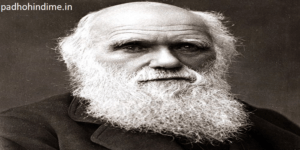Charles Darwin Biography.
Charles Darwin was an influential British scientist who revolutionized our understanding of the natural world with his theory of evolution. Born on February 12, 1809, in Shrewsbury, England, Darwin grew up in a privileged and intellectually stimulating environment. His father was a successful doctor, and his mother came from a family of prominent intellectuals.
Darwin’s interest in nature was evident from a young age. He loved exploring the countryside, collecting specimens, and observing wildlife. However, his father had different plans for him and sent him to study medicine at the University of Edinburgh. But Darwin found the medical field unappealing and neglected his studies, spending his time instead on natural history and geology.
In 1831, Darwin was offered an opportunity that would change the course of his life. He was invited to join the HMS Beagle, a scientific expedition ship that was embarking on a voyage around the world. Darwin eagerly accepted the offer and set sail on December 27, 1831.
During the five-year journey, Darwin visited various regions, including South America, the Galapagos Islands, Australia, and Africa. He meticulously documented his observations, collected specimens, and studied geological formations. It was during this voyage that Darwin began to develop his ideas on evolution.

One of Darwin’s most significant discoveries was made on the Galapagos Islands. He noticed that the same species of finches had different beak shapes on different islands, depending on the available food sources. This observation led him to theorize that species could change over time in response to their environment.
After returning to England in 1836, Darwin continued to study and refine his ideas. He collected extensive evidence from various sources, including fossils, domestic breeding experiments, and observations of plants and animals. His studies led him to propose the theory of natural selection, which he detailed in his groundbreaking book, “On the Origin of Species,” published in 1859.
In this book, Darwin argued that all species, including humans, had evolved over time through a process of natural selection. He proposed that individuals with advantageous traits were more likely to survive and reproduce, passing on those traits to future generations. This concept challenged the prevailing belief in a fixed and unchanging world.
Darwin’s theory of evolution caused a significant controversy within the scientific community and beyond. It clashed with religious beliefs and was seen as a direct challenge to the idea of divine creation. However, Darwin’s meticulous research and evidence gradually won over many scientists and intellectuals, and his theory became widely accepted within the scientific community.
Throughout his life, Darwin continued to study and write about various aspects of natural history. He published several books, including “The Descent of Man” and “The Expression of the Emotions in Man and Animals,” which further explored the implications of his evolutionary theory.
Darwin’s contributions to science and our understanding of the natural world cannot be overstated. His theory of evolution laid the foundation for modern biology and has had a profound impact on fields such as genetics, anthropology, and ecology. Darwin’s ideas have shaped our understanding of the interconnectedness of all living things and the processes that have shaped life on Earth.
Charles Darwin died on April 19, 1882, in Downe, Kent, leaving behind a rich legacy of scientific inquiry and exploration. His work continues to inspire and influence scientists, educators, and thinkers around the world, reminding us of the power of observation, evidence, and intellectual curiosity in unraveling the mysteries of life.




